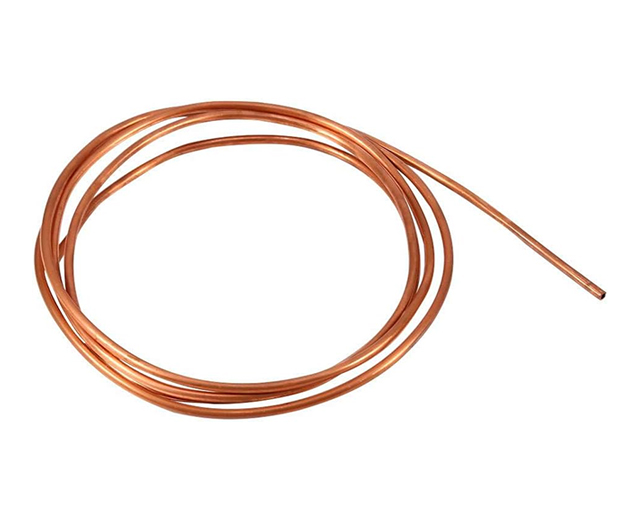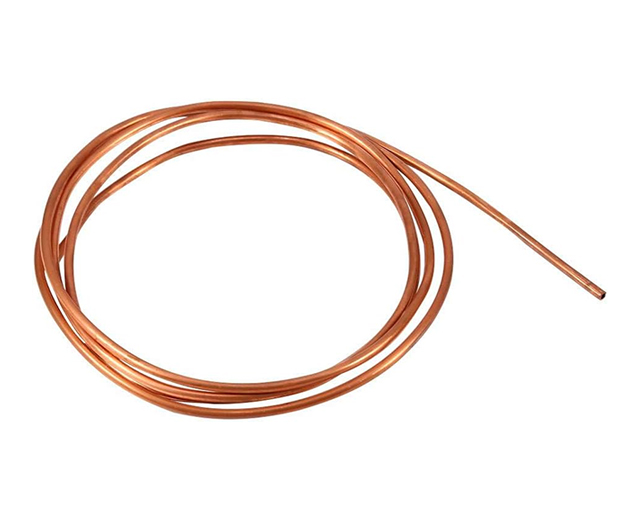

A Copper Tubular Busbar is a high-performance Electrical Busbar made from copper in a tubular form, designed to efficiently conduct electricity with minimal resistance. Unlike traditional flat or solid Copper Busbars, hollow copper tubular busbars reduce weight while maintaining excellent conductivity, making them ideal for industrial Copper Busbar applications. Solid copper tubular busbars are also widely used for high-current circuits requiring maximum durability. Other variants include high current copper busbars, copper tube busbars, and MCB copper busbars, each tailored to specific power distribution needs.

The production of a copper tubular busbar involves several critical steps:
Material Selection: High-quality copper is chosen for its conductivity, including options for nickel-plated copper busbars or PVC insulated copper busbars for enhanced corrosion resistance or safety.
Shaping: Copper tubes are extruded or formed into hollow or solid shapes to achieve the desired current-carrying capacity.
Cutting & Drilling: Customized sizes are cut and holes are drilled for easy installation in switchgear or power distribution busbar systems.
Surface Treatment: Optional nickel plating or PVC insulation ensures longevity and reduces oxidation.
Quality Testing: Each copper busbar conductor is tested for low resistance, high conductivity, and compliance with industrial standards.
Copper tubular busbars are versatile and widely applied across multiple industries:
Industrial Copper Busbar Applications: Heavy machinery, factories, and high-power equipment.
Power Distribution Systems: Used in power distribution busbars for switchgear, control panels, and electrical cabinets.
MCB Systems: MCB copper busbars provide efficient distribution in miniature circuit breaker panels.
Electrical Busbar Networks: Including high current copper busbars for demanding electrical networks.
Specialized Applications: Hollow copper tubular busbars for lightweight solutions and nickel-plated copper busbars for corrosion-resistant setups.
Excellent Conductivity: As a low-resistance copper busbar, it ensures minimal energy loss.
Durability: Solid copper tubular busbars withstand mechanical stress and heavy current loads.
Weight Efficiency: Hollow copper tubular busbars offer high conductivity with reduced weight.
Versatility: Suitable for industrial copper busbars, copper tube busbars, and PVC insulated copper busbars in varied applications.
Customizable: Can be designed for specific amperage, voltage, and installation requirements.
Designing a copper tubular busbar requires consideration of:
Current Rating: Ensuring it can handle the intended load, especially for high current copper busbars.
Material Type: Selecting between bare copper, nickel-plated copper busbars, or PVC insulated options.
Shape & Size: Deciding between hollow or solid tubes based on weight, space, and conductivity needs.
Application Environment: For example, indoor MCB copper busbars vs outdoor industrial busbars exposed to harsh conditions.
Electrical Standards Compliance: Ensuring the copper busbar conductor meets safety and efficiency requirements.
At G and N Fortune Limited, we provide premium copper tubular busbars engineered for reliability and long-term performance:
Wide range of hollow and solid copper tubular busbars for various industrial needs.
High current copper busbars and MCB copper busbars designed for safe power distribution.
Optional nickel-plated copper busbars or PVC insulated copper busbars for corrosion resistance and insulation.
Strict quality control ensures low-resistance copper busbars and superior conductivity.
Customizable solutions to meet all industrial copper busbar and electrical busbar applications.
Q1: What is the difference between hollow and solid copper tubular busbars?
A: Hollow copper tubular busbars reduce weight and material cost while maintaining excellent conductivity. Solid copper tubular busbars provide higher mechanical strength and are suitable for extremely high-current applications.
Q2: Can I use copper tubular busbars in MCB panels?
A: Yes, MCB copper busbars are specially designed for miniature circuit breakers and power distribution panels.
Q3: Why choose nickel-plated or PVC insulated copper busbars?
A: Nickel-plated copper busbars resist corrosion and oxidation, while PVC insulated copper busbars provide additional electrical safety in exposed environments.
Q4: How do I know which copper tubular busbar is suitable for my project?
A: Consider current load, application environment, mechanical stress, and space constraints. For high-current or industrial applications, high current copper busbars or industrial copper busbars are recommended.